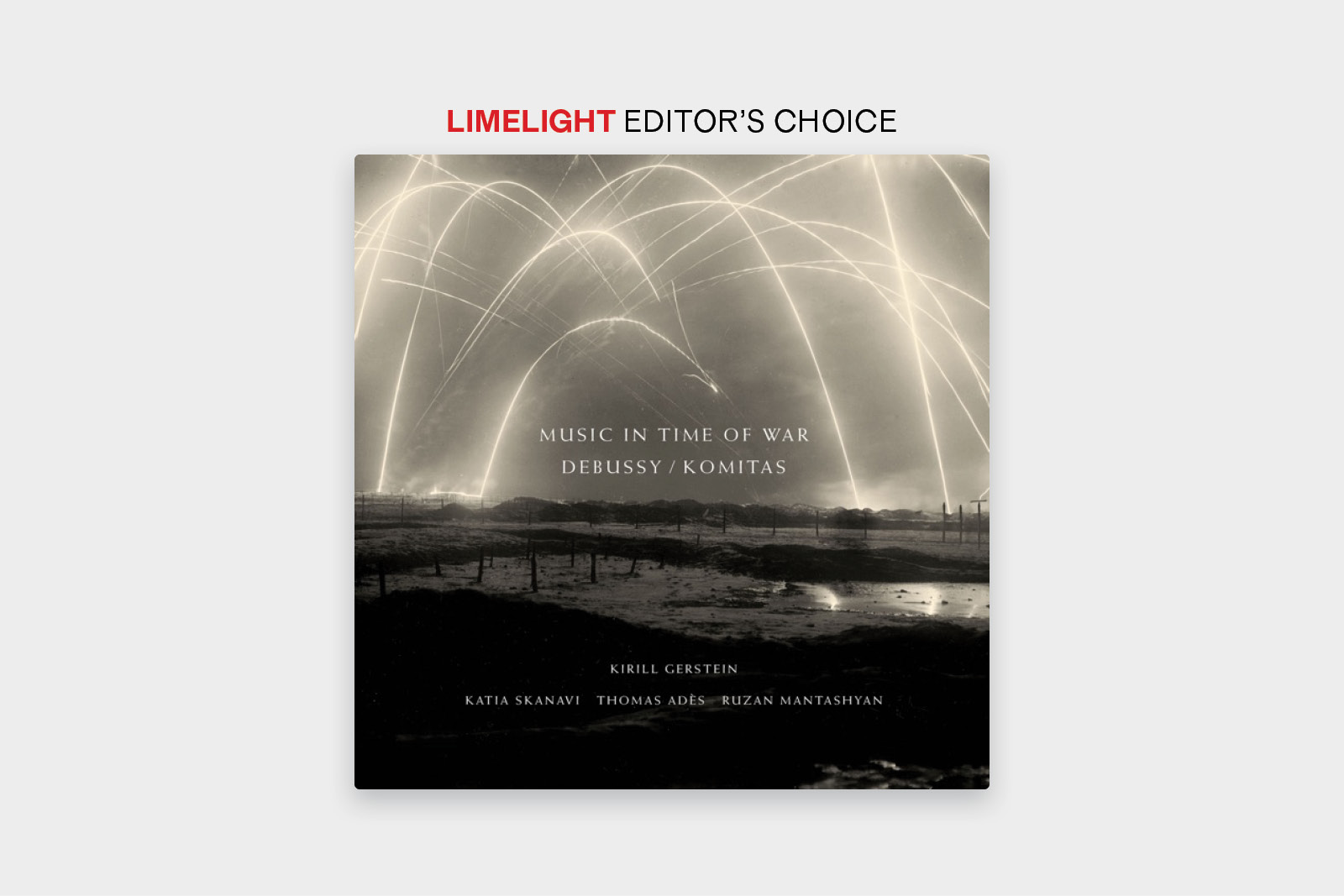Music in Time of War projects a haunting sonic exhibition featuring the vocal and piano music of Armenian ethnomusicologist Komitas Vardapet and Claude Debussy, the music written at a time when both felt keenly the effects of war, respectively the Armenian genocide and World War One.

Together with fellow performers soprano Ruzan Mantashyan and pianists Katia Skanavi and Thomas Adès, that ever-imaginative pianist Russian-American Kirill Gerstein here explores the two composers’ intersecting experiences through Debussy’s late piano music and those compositions of Komitas’s which most powerfully evoke his people’s heartrending plight.
Why Gerstein should bring the music of Debussy and Komitas together in our own troubled times is easily answered. In his foreword to what is a very substantial book (not booklet) containing essays and other writings by French historian Annette Becker, Armenian musicologist Artur Avanesov, Columbia academic and author Khatchig Mouradian and composer and oboist Heinz Holliger, Gerstein notes that “As I write now, we are again surrounded by conflict and genocide… We see humanity’s worst and best in such times.”
Debussy was a great admirer of Komitas’s music, and both composers were, in Gerstein’s words, “profoundly affected by the implosion of their worlds.” Nevertheless, and this is particularly true of the more “abstract” music such as Debussy’s 12 Études written in 1915, all the works here can still be appreciated cut from their contextual moorings. This despite Gerstein’s belief that “our understanding cannot be divorced from the historical and cultural setting.”
Enhanced by the spacious acoustic of Vienna’s Konzerthaus, which helps “convey the sense of loneliness and fantasy suggested in these works” Gerstein’s lyrical take on the 12 Études brings to mind Jean-Efflam Bavouzet’s fine grasp of the witty invention and underlying nostalgia for lost worlds inherent in pieces such as Pour les tierces, Pour les sixtes and Pour les sonorités opposes. Komitas’ following Armenian Dances (1916) are more melancholic, more infused with dance and folk music, but Gerstein finds profound mystery here too: listen to Unabi of Shushi or Shoror of Karin.
Debussy’s marvellously languid Chanson de Bilitis from an earlier time (1897-98) find Gerstein accompanying Armenian soprano Ruzan Mantashyan, who gives a clear, crisp yet full-blooded and sensual reading of La Chevelure especially. The Six Épigraphes antiques for piano four hands (1914-15) seem, despite the intervening years, to stem from the same sound world, Gerstein and Skanavi rejoicing in the antique evocations of such movements as Pour invoquer Pan, dieu du vent d’été and Pour l’Égyptienne.
In contrast to the relative insouciance of Chanson de Bilitis, Mantashyan and Gerstein effectively tap into the declamatory darkness and mournful melismas of Komitas’s Armenian Songs for some of the most affecting performances on this release. This is as true for the famous Antouni as for the more delicate Qeler Tsoler.
A collection of Debussy’s late solo piano pieces including his last known composition for solo piano, Les Soirs illuminés par l’ardeur du charbon (1917), and a knockout performance by Gerstein and Adès of the composer’s En blanc et noir suite for two pianos make for a satisfyingly valedictory collective coda to this standout release: in tempore belli indeed.
Title: Music in Time of War
Works: Music by Debussy and Komitas
Performers: Kirill Gerstein p, Katia Skavani p, Thomas Adès p, Ruzan Mantashyan s
Label: Myrios Classics MYR905 (2CD)











Comments
Log in to join the conversation.